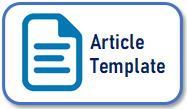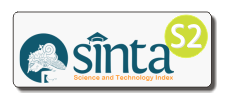Redefining Poverty and Its Measurement: An Islamic Political Economy Perspectives
DOI:
https://doi.org/10.14421/grieb.2016.042-01Abstract
Islamic economists have always taken the position on the intrinsic capability of poverty alleviation in the Islamic economic model. The poverty, in economics and social sciences, is taken in the context of economic deprivation. Among the multitudinous meanings of poverty, generally it is defined as the lack of income, human underdevelopment, social exclusion, ill being, unsustainable livelihood, lack of basic needs, vulnerability and relative deprivation, while multifarious methodologies like head count ratio, poverty gap ratio, income gap ratio and Sen index are used to measure the poverty. The poverty in the developed countries mostly is identified relative to the average level of income as compared to developing countries which usually define it on the grounds of absolute standard of living.
Islamic model clearly addresses poverty in number of ways and even considers it as a threat to faith and recommends alleviating it through different tools like zakat, which is the negative rate of return on savings. The tools prescribed in Islam for counteracting poverty are designed on different conceptual grounds to conventional poverty reduction tools, similarly Islam’s conceptually constructed understanding on: lack of income, human underdevelopment, social exclusion, ill being, unsustainable livelihood, lack of basic needs, vulnerability and relative deprivation differs in its context and in its intrinsic intellectual positioning to the conventional interpretation of these concepts. Inductively therefore, Islam’s idea of, ‘what is poverty?’ and ‘How it can be measured’, is distinct and different to the general perception of poverty.
This paper objectively examines the subjective meaning of poverty within Islam, through analysing the intellectual rigour on poverty in the transcendental sources of Islam along with the conceptual construction of Al Ghazali’s work on happiness. It further applies the uniform principles of maqasid al shariah (objectives of Islamic law) and nisab (standard for Zakat to be liable) in an attempt to develop the understanding of monetary measures, which can be used to identify ‘poor and needy’ within an economy. The results should provide the basic argument for the distinction on Islamic concept of poverty and a framework in which such definition can translate into the categorisation of ‘poor’ within an economy; along with some foundational understanding of Islamic value approach on monetary measurement of poverty.
References
Al-Ghazali, Abu Hamed Mohammad ibn Mohammad (2005). The Alchemy of Happiness, Translated by Claud Field. NY: Cosimo Classic.
Al-Raysuni, Ahmad (2005). Imam al Shatibi’s Theory of the Higher Objectives and Intents of Islamic Law. London: The International Institute of Islamic Thoughts.
Asutay, Mehmet; and Zaman, Nazim (2009). “Divergence between Aspirations and Realities of Islamic Economics: A Political Economy Approach to Bridging the Divide”. IIUM Journal of Economics and Management 17(1): 73-96.
Auda, Jasser (2008). Maqasid Al-Shariahh As Philosophy of Islamic Law. London: The International Institute of Islamic Thoughts.
Citro, C.F. and R.T. Michael. (1995). Measuring Poverty: A New Approach. Washington, DC: National Academy Press.
Clark, D.A. (2005). “Sen’s Capability Approach and the Many Spaces of Human Well-being”. Journal of Development Studies, 41(8), 1339–68.
Denton, John A. (1990). Society and the Official World: A reintroduction to sociology. NY, US: Dix hill, General Hall.
Gardet, L. "Dīn". P. Bearman (Ed.), Th. Bianquis (Ed.), C.E. Bosworth (Ed.), E. van Donzel (Ed.) and W.P. Heinrichs (Ed.). Encyclopaedia of Islam, Second Edition. Brill, 2011. Brill Online. Durham University Library. Available at: [http://www.brillonline.nl/subscriber/entry?entry=islam_COM-0168] Access Date: 14 July 2011.
Gleave, R.M. "Maḳāṣidal-Sharīʿa (a.)". P. Bearman (Ed.), Th. Bianquis (Ed.), C.E. Bosworth (Ed.), E. van Donzel (Ed.) and W.P. Heinrichs (Ed.). Encyclopaedia of Islam, Second Edition. Brill, 2011. Brill Online. Durham University Library. Available at: [http://www.brillonline.nl/subscriber/entry?entry=islam_SIM-8809]Access Date:13 July 2011.
Hahn, Johannes (Münster). "Poverty." Hubert Cancik (Ed.) and Helmuth Schneider (Ed.). Brill's New Pauly. Antiquity volumes. Brill Online. Durham University Library. Available at: [http://www.brillonline.nl/subscriber/entry?entry=bnp_e200370] Access Date: 05 July 2011.
Kingdon, Geeta Gandhi and Knight, John (2004). “Subjective well-being poverty versus income poverty and capabilities poverty? GPRG-WPS-003”. Global Poverty Research Group Centre for the Study of African Economies. Available at: [http://economics.ouls.ox.ac.uk/14079/1/gprg-wps-003.pdf] Access Date: 30th June, 2011.
Nyazee, I. A. Khan (2000). Islamic Jurisprudence. Pakistan: The International Institute of Islamic Thoughts.
Nizami, K.A. "Faḳīr." Encyclopaedia of Islam, Second Edition. Edited by: P. Bearman;, Th. Bianquis (Ed.), C.E. Bosworth (Ed.), E. van Donzel (Ed.) and W.P. Heinrichs (Ed.). Brill, 2011. Brill Online. Durham University Library. Available at: [http://www.brillonline.nl/subscriber/entry?entry=islam_SIM-2252] Access Date: 05 July 2011.
Tafsir Ibn Kathir. Available at: [http://www.quran4u.com/Tafsir%20Ibn%20Kathir/PDF/002%20Baqarah%20II.pdf] Access Date: 09 July 2011.
Townsend, (1979). Poverty in United kingdom: A Survey of Household Resources and Standard of Living. Canada:Penguin.
Tripp, Charles (2006). Islam and the Moral Economy: The Challenge of Capitalism. Cambridge University Press.
Wagle, U. (2008). Multidimensional Poverty Measurement. NY: Springer Science + Business Media, LLC.
Downloads
Published
Issue
Section
License
Global Review of Islamic Economics and Business is licensed under a
Creative Commons Attribution-ShareAlike 4.0 International License



















